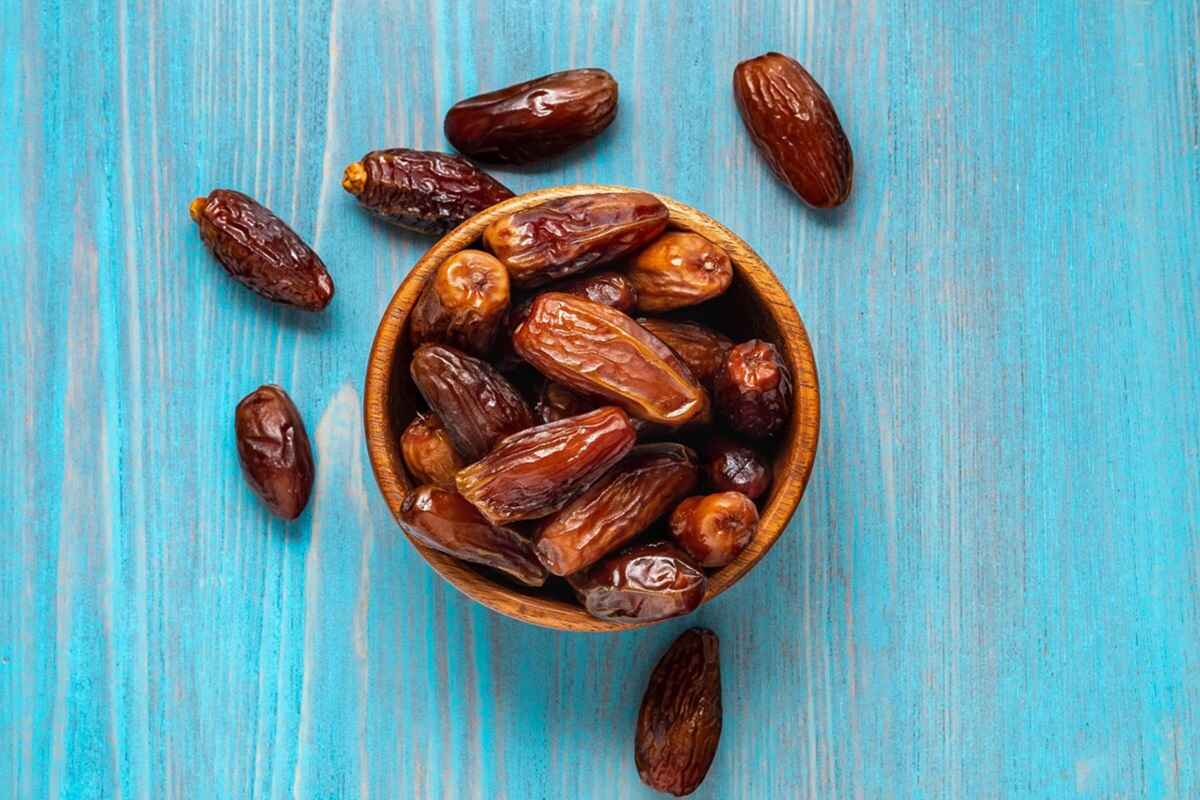Dates Benefits for Brain: We all want our brains to function at their best for as long as possible. There are many scientifically proven ways to support brain health, including regular exercise and the consumption of foods that nourish the mind. Among all the brain-boosting foods, dates hold a special place. Packed with essential nutrients, antioxidants, and natural sugars, dates not only provide energy but also play a significant role in cognitive function.
In fact, the dates benefits for brain have been studied extensively, showing that regular consumption can help improve memory, enhance focus, and protect brain cells from oxidative stress. From traditional practices to modern research, dates have consistently been recognized as a natural ally for maintaining mental clarity and supporting long-term brain health.
In this article, we will explore in depth the many ways in which dates can benefit the brain, highlighting why including them in your daily diet may be one of the simplest yet most effective strategies for mental well-being.
Dates, Rich in Nutrients
Dates are naturally high in sugars, with roughly 70% of their calories coming from glucose and fructose. While they contain more calories per serving than most fresh fruits, they are comparable to other dried fruits like figs and raisins. Despite their higher calorie content, dates are packed with fiber, essential vitamins, and minerals, making them a nutrient-dense choice for a healthy diet.
For example, a 2-ounce serving of Medjool dates (about two to four dates, depending on size) provides:
Calories: 166
Fiber: 4 grams
Carbohydrates: 45 grams
Potassium: 9% of the Daily Value (DV)
Magnesium: 8% DV
Copper: 24% DV
Manganese: 8% DV
Vitamin B6: 9% DV
When buying in bulk, sourcing from reliable wholesale dates suppliers ensures both quality and affordability, making it easier to include these nutrient-packed fruits regularly in your diet.
Dates Benefits for Brain: Support Brain Health
Dates are increasingly recognized for their potential dates benefits for brain due to their neuroprotective properties. Research suggests that consuming dates may help maintain brain function and reduce the risk of cognitive decline as we age.
Animal studies have provided promising insights into how dates may protect the brain. For example, these studies indicate that eating dates could reduce the activity of amyloid beta proteins, which are known to accumulate and form plaques in the brain—a hallmark of Alzheimer’s disease. By reducing these harmful protein deposits, dates may help slow or prevent the progression of neurodegenerative disorders.
Additionally, dates have been shown to lower inflammatory markers in the body that are linked to brain diseases such as Alzheimer’s and Parkinson’s. Chronic inflammation in the brain is a major factor in cognitive decline, and the natural anti-inflammatory compounds in dates may play a protective role.
Experts believe that the brain health benefits of dates are largely due to their rich content of phenolic plant compounds and antioxidants, including anthocyanins, ferulic acid, protocatechuic acid, and caffeic acid. These compounds help neutralize free radicals, reduce oxidative stress, and support overall brain cell health.
While most current studies have been conducted on animals, the evidence highlights the potential dates benefits for brain and suggests that including dates regularly in your diet could be a simple, natural strategy for supporting cognitive function. More research involving human participants is needed to fully understand the extent of these benefits, but the findings so far make dates a promising addition to a brain-healthy diet.
How Many Dates Can You Eat a Day?
Dates are naturally sweet and packed with nutrients, but they are also calorie-dense and high in fiber and natural sugars. This means that while they are a healthy snack for many, they may not be suitable for every diet or eating plan, especially if you are watching your calorie or sugar intake.
You can enjoy dates in many ways: as a quick and energizing snack, added to breakfast cereals, blended into smoothies, or incorporated into desserts and side dishes. Popular varieties like Piarom dates offer a rich, caramel-like flavor, while Iranian Muzafati dates of Bam is known for its soft texture and sweet taste. For those who prefer a firmer date, Zahidi dates provides a chewier option that is perfect for baking or snacking.
There is no strict rule about how many dates you should eat each day. The right amount depends on your individual calorie needs, activity level, and overall diet. Some people may comfortably enjoy several dates per day, while others may need to limit their intake to avoid excess sugar consumption or digestive discomfort.
According to the U.S. Department of Agriculture (USDA) MyPlate guidelines, a standard serving of dried fruit is about 1/2 cup. This can serve as a helpful reference if you want to incorporate dates into your diet without overdoing it. Including a few dates daily can provide energy, fiber, and essential nutrients, making them a convenient and nutritious addition to your meals.



